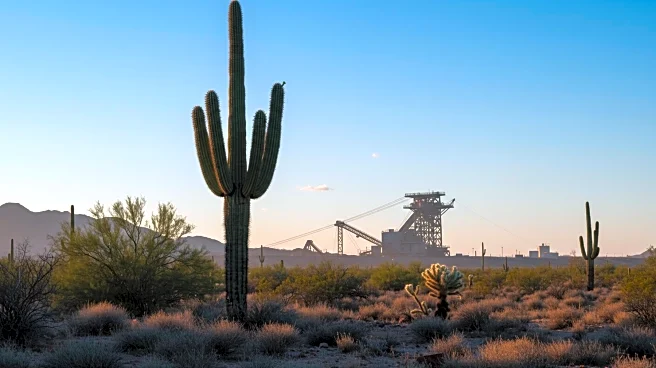What's Happening?
A federal judge has denied a request to prevent the transfer of Oak Flat land in Arizona to Resolution Copper, a mining company. This decision marks a significant development in the controversy surrounding mining operations on lands considered sacred by Native American communities. The ruling allows the transfer process to continue, potentially paving the way for expanded mining activities in the region. The case highlights the legal challenges faced by indigenous groups seeking to protect culturally significant sites from industrial development.
Why It's Important?
The court's decision underscores the complex interplay between indigenous rights, environmental concerns, and economic development. By allowing the land transfer to proceed, the ruling may set a precedent for similar cases involving sacred sites and resource extraction projects across the country. The decision reflects broader scrutiny of mining projects and their impacts on indigenous communities and the environment. As mining companies seek access to valuable mineral resources, conflicts with indigenous communities and environmental groups are likely to persist.
Beyond the Headlines
The ongoing legal battles surrounding Oak Flat raise larger questions about balancing economic development with cultural preservation and environmental protection. The court's decision represents another chapter in the complex relationship between resource extraction industries and the communities affected by their operations. As mining companies continue to pursue projects on sacred lands, the tension between economic interests and cultural values remains a critical issue.









